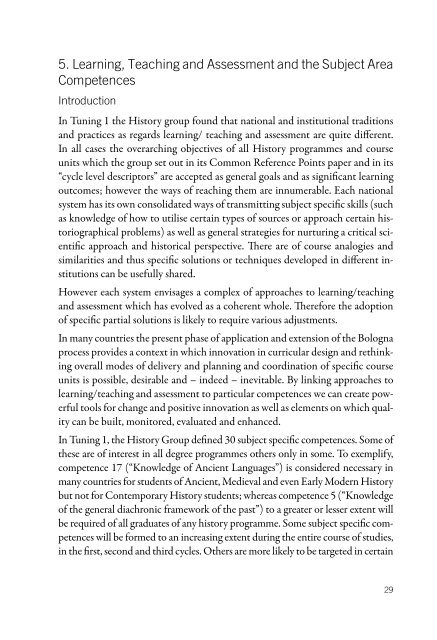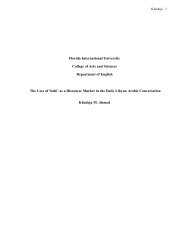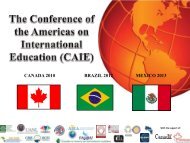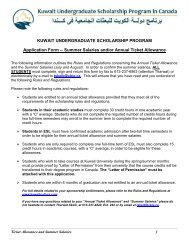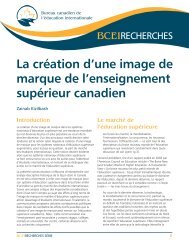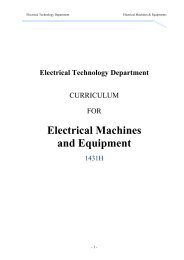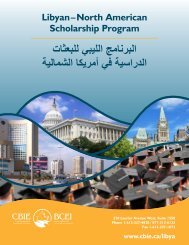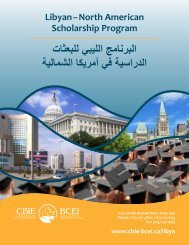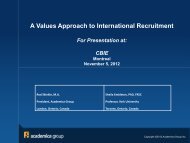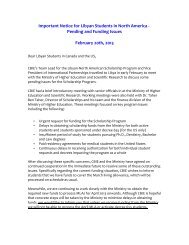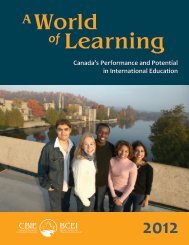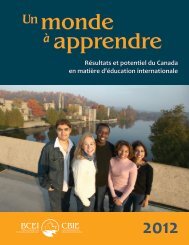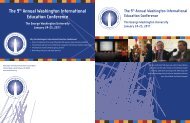Creating a New Historical Perspective: EU and the Wider World ...
Creating a New Historical Perspective: EU and the Wider World ...
Creating a New Historical Perspective: EU and the Wider World ...
Create successful ePaper yourself
Turn your PDF publications into a flip-book with our unique Google optimized e-Paper software.
5. Learning, Teaching <strong>and</strong> Assessment <strong>and</strong> <strong>the</strong> Subject Area<br />
Competences<br />
Introduction<br />
In Tuning 1 <strong>the</strong> History group found that national <strong>and</strong> institutional traditions<br />
<strong>and</strong> practices as regards learning/ teaching <strong>and</strong> assessment are quite different.<br />
In all cases <strong>the</strong> overarching objectives of all History programmes <strong>and</strong> course<br />
units which <strong>the</strong> group set out in its Common Reference Points paper <strong>and</strong> in its<br />
“cycle level descriptors” are accepted as general goals <strong>and</strong> as significant learning<br />
outcomes; however <strong>the</strong> ways of reaching <strong>the</strong>m are innumerable. Each national<br />
system has its own consolidated ways of transmitting subject specific skills (such<br />
as knowledge of how to utilise certain types of sources or approach certain historiographical<br />
problems) as well as general strategies for nurturing a critical scientific<br />
approach <strong>and</strong> historical perspective. There are of course analogies <strong>and</strong><br />
similarities <strong>and</strong> thus specific solutions or techniques developed in different institutions<br />
can be usefully shared.<br />
However each system envisages a complex of approaches to learning/teaching<br />
<strong>and</strong> assessment which has evolved as a coherent whole. Therefore <strong>the</strong> adoption<br />
of specific partial solutions is likely to require various adjustments.<br />
In many countries <strong>the</strong> present phase of application <strong>and</strong> extension of <strong>the</strong> Bologna<br />
process provides a context in which innovation in curricular design <strong>and</strong> rethinking<br />
overall modes of delivery <strong>and</strong> planning <strong>and</strong> coordination of specific course<br />
units is possible, desirable <strong>and</strong> – indeed – inevitable. By linking approaches to<br />
learning/teaching <strong>and</strong> assessment to particular competences we can create powerful<br />
tools for change <strong>and</strong> positive innovation as well as elements on which quality<br />
can be built, monitored, evaluated <strong>and</strong> enhanced.<br />
In Tuning 1, <strong>the</strong> History Group defined 30 subject specific competences. Some of<br />
<strong>the</strong>se are of interest in all degree programmes o<strong>the</strong>rs only in some. To exemplify,<br />
competence 17 (“Knowledge of Ancient Languages”) is considered necessary in<br />
many countries for students of Ancient, Medieval <strong>and</strong> even Early Modern History<br />
but not for Contemporary History students; whereas competence 5 (“Knowledge<br />
of <strong>the</strong> general diachronic framework of <strong>the</strong> past”) to a greater or lesser extent will<br />
be required of all graduates of any history programme. Some subject specific competences<br />
will be formed to an increasing extent during <strong>the</strong> entire course of studies,<br />
in <strong>the</strong> first, second <strong>and</strong> third cycles. O<strong>the</strong>rs are more likely to be targeted in certain<br />
29


